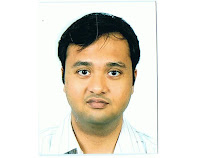Real Power
All of us are familiar with the saying 'Knowledge is power' but are not aware of a systematic process to convert knowledge into power. Real power comes from a person's awareness of subtle details and specialized knowledge and applying the specialized knowledge and specialized skills to manipulate events, circumstances and things to the person's advantage. The person with the most real power is often not the person with the highest office or position. A person who has real power does not show it, unless the situation really demands it and there is no other alternative. Only an insecure person who lacks real power has a need to constantly remind others that he is powerful.
In the Mahabharata, there are several gods who appear as characters - including the devas such as Indra, Surya etc as well as the gods of the holy trinity like Shiva. Indra has the title of the king of the gods, and Shiva has the title of 'Mahadeva' or the greatest of the gods. The central character of the Mahabharata however is Vishnu, or Krishna, who does not have any great title as such. He is merely a preserver, not a creator or destroyer. Krishna seems like an ordinary person to others in most situations except for certain specific events where he has no choice but to display his power to protect innocent people. There is an instance where Indra gets angry and spiteful with the people of Gokul and sends a fierce storm to the village. However Krishna protects the people by holding the mighty mountain Govardhana on his little finger. After the event, he diverts people's attention from this stupendous feat by asking them to worship the mountain Govardhana which protected them.
In another instance in the Mahabharata, Jayadratha's undergoes penance to please Shiva and seek a boon to defeat the Pandavas. Lord Shiva grants him a boon to hold the Pandavas (other than Arjuna) for one day in battle. This boon directly leads to Abhimanyu's death in a very unfair and cruel manner. This shows that Shiva is powerless to refuse to grant a boon even to an evil person who seeks to please Shiva only with a selfish and evil motive of revenge, even if it leads to a consequence such as the killing of an innocent and brave lad by a group of warriors even while he is unarmed. The real power is with Krishna, who is able to manipulate great warriors like Bhishma, Drona and Karna to their death by strategies based on specialized knowledge about their personalities including their strengths and weaknesses. He does not have to wield any weapons to achieve his objective.


2 Comments:
(1) Vishnu means all pervading. He is also one of the trinity. So Krishna==Vishnu also has great titles, not just Shiva and Indra. The Vishnu Sahasrama gives 1008 titles to Vishnu/Krishna.
(2) Likely Abhimanyu's death was also a result of his karma/Arjuna's karma (though there is no indication in the Mhabharata regarding this). Bhima/Arjuna/Draupadi were also motivated by revenge (possibly all except Bhishma and Yudishthira).
What about the 100s of thousands of people who fought on either side and were killed - definitely many of them were innocent w.r.t that lifetime and by duty had to fight on this side or that side and killed/got killed in the process? Did Krishna/Arjuna cause the death of these innocent people for the sake of Arjun/Yudisthira regaining their kingdom? Why not they challenge Duryodhana to individual combat (which happened in the end anyway with Bhima with a winner take all prize) instead of going to war with troops? Are people on Pandava side and their supporters guilty of causing death of innocent lives also? Either Pandavas also caused the death of innocents or the death was due to the past karma of the dead. It cannot be both true.In that sense Abhimanyu's death might also have been his karma.
(3)The article seems to suggest that somehow Krishna is superior to Shiva which is not the case. Krishna too could not refuse Duryodhana and had to give him his Yadava troops who all got killed in return (possibly lots of good people on the Pandava's side got killed in addition by these Yadava troups). Why did he do that? The point is each has a duty to fulfil within the framework of laws for the harmony of creation which they followed (Krishna/Shiva). Have you heard of the story where a Vishnu devotee who badly wanted children could not get one and Narada seeing him went and asked Vishnu? Vishnu said that it was that person's karma and he could do nothing. Later when Narada visited the earth he found that devotee happily playing with his children. Surprised he enquired and found that a mahatma (ordinary realized soul /guru, not even an incarnation) had blessed him for his services and hence he got children. How come Vishnu in heaven (== Krishna) could not provide a child when a Mahatma could? The answer is that in that role of Vishnu in Heaven he could not override the karma. When a guru/ mahatma incarnates on earth they are allowed to bend rules for the benefit of mankind. Ultimately there is no Krishna/Vishnu/Shiva as different entities.They are all the same power expresssing according to the role and the situation.
Dear Anonymous,
The article is not about who is greater among Vishnu and Shiva. It is about what gives any individual real power.
'Real power comes from a person's awareness of subtle details and specialized knowledge and applying the specialized knowledge and specialized skills to manipulate events, circumstances and things to the person's advantage.'
Post a Comment
Subscribe to Post Comments [Atom]
<< Home